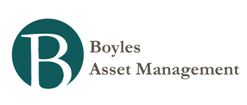Nassim Taleb's foreward to "Lecturing Birds on Flying"
From a couple of years ago.
January 2009: I am at the World Economic Forum in Davos, looking at the sorry crowd of businessmen, journalists, and bankers. There are also a few finance academics. Many practitioners look like they have just fallen off a bicycle, still confused about how to behave. All these years, they had not realized that their models underestimated the risks of high-impact rare events, allowing the buildup of huge positions that are in the process of destroying free markets, capitalism, and finance. Instead of making probabilistic assessments about Black Swans, they should have insured some kind of robustness to them. I feel sorry for the crowd, as I am certain that most of these people will not be here next year—there is effectively a mechanism called evolution, harsh to humans.
But the academics among them, equally wrong about the models (in fact, they were the ones feeding bankers with bad models), wrong about the world, wrong about the very notion of knowledge, wrong about everything, will be back next year—that I guarantee. Unless they are caught seducing graduate assistants, their jobs are safe. Nobody ever lost his tenure in social science for being wrong (the opposite may be true). There is no such thing as evolution in academic settings.
The biggest myth I’ve encountered in my life is as follows: that the road from practical know-how to theoretical knowledge is reversible—in other words, that theoretical knowledge can lead to practical applications, just as practical applications can lead to theoretical knowledge. After all, this is the reason we have schools, universities, professors, research centers, homework, exams, essays, dissertations, and the strange brand of individuals called “economists.”
Yet the strange thing is that it is very hard to realize that knowledge cannot travel equally in both directions. It flows better from practice to theory—but to understand it you have nontheoretical knowledge. And people who have nontheoretical knowledge don’t think of these things.
Indeed, if knowledge flowed equally in both directions, then theory without experience should be equivalent to experience without theory—which is not the case.
………………..
Related book: Lecturing Birds on Flying
- Nassim Taleb Quote
“Knowledge formation, even when theoretical, takes time, some boredom, and the freedom that comes from having another occupation, therefore allowing one to escape the journalistic-style pressure of modern publish-and-perish academia to produce cosmetic...
- Nassim Taleb Quote (experts)
“You cannot ignore self-delusion. The problem with experts is that they do not know what they do not know. Lack of knowledge and delusion about the quality of your knowledge come together—the same process that makes you know less also makes you satisfied...
- Nassim Taleb: Throw Out The Probability Models
Found via Farnam Street. After the events that started in 2007 and the subsequent reactions by economists, anyone who takes the current economics establishment seriously needs to spend time in a sanatorium. This does not mean we should write off the entire...
- Bystanders To This Financial Crime Were Many - By Nassim Nicholas Taleb And Pablo Triana
A crime has been committed. Yes, we insist, a crime. There is a victim (the helpless retirees, taxpayers funding losses, perhaps even capitalism and free society). There were plenty of bystanders. And there was a robbery (overcompensated bankers who got...
- Inside Wall Street's Black Hole By Michael Lewis
In my opinion, one should just file Black-Scholes in the same category as the Efficient Market Hypothesis/Theory, the Capital Asset Pricing Model (CAPM), Beta, etc. That category, to borrow a term from Charlie Munger, should be labeled TWADDLE. But let's...

